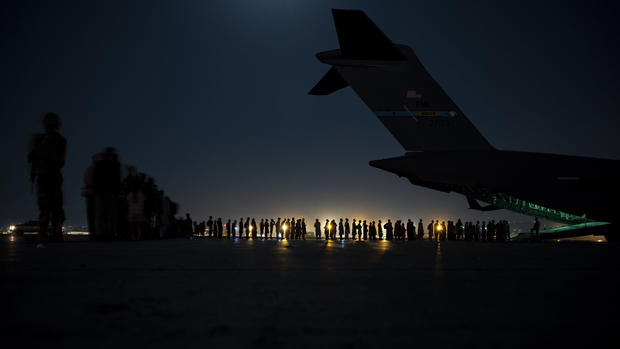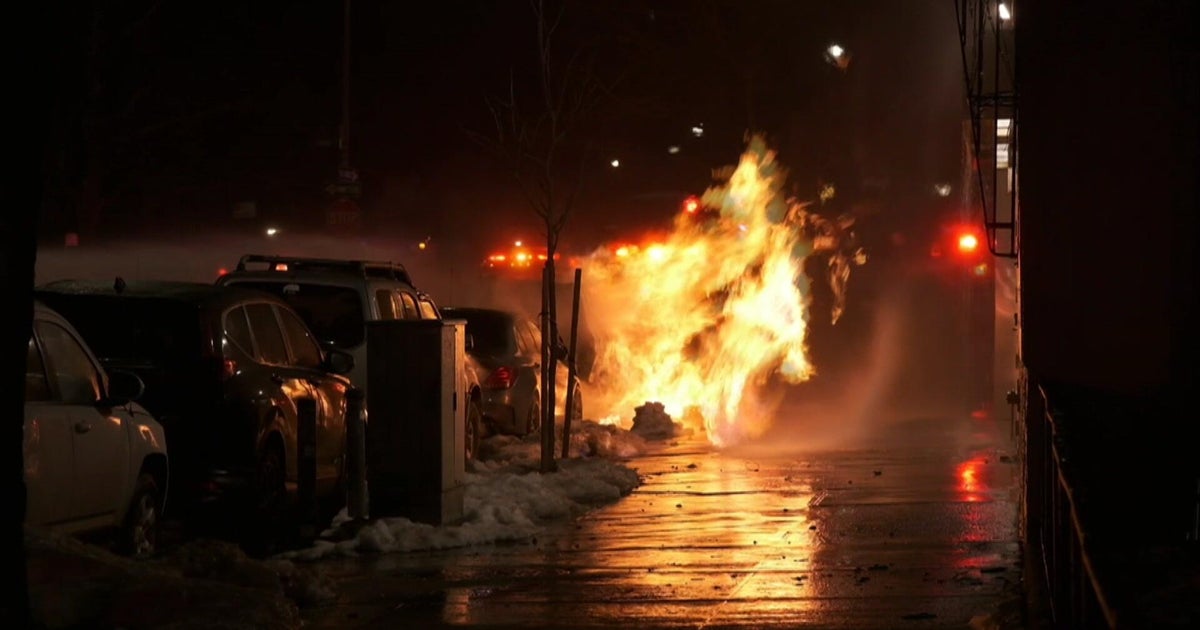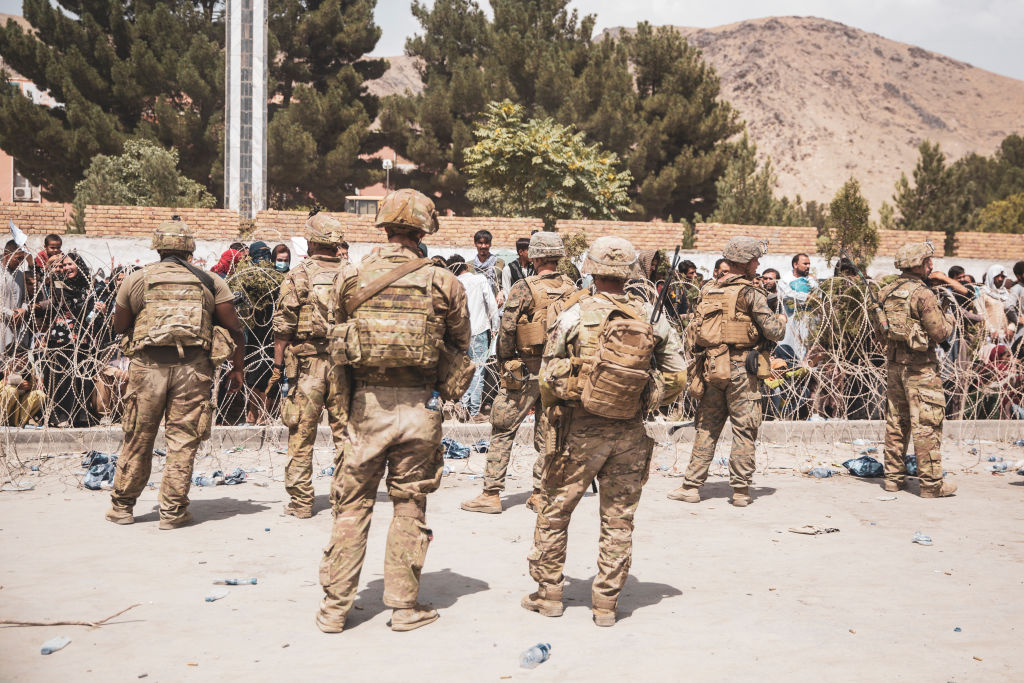U.S. adds planes to Afghan airlift as Taliban warns of "consequences" if withdrawal deadline is missed
An Afghan security guard was killed in a shootout on Monday just outside Kabul's international airport as hectic scenes continued with thousands of people clambering for a way out of the country. The Biden administration was ramping up its frantic evacuation efforts, with the U.S. military sending 20 more planes into Kabul to help fly people out of the country.
The pressure to complete the evacuation of tens of thousands of U.S. nationals, their dependents, and vulnerable Afghans was increasing, meanwhile, with Afghanistan's new Taliban rulers warning that the end-of-August deadline set by President Biden to have U.S. forces out would not be allowed to slide. The Taliban expects the roughly 6,000 American service members carrying out the herculean Kabul evacuation mission to be gone by August 31, or face "consequences."
"If the U.S. or the U.K. were to seek additional time to continue evacuations, the answer is no. Or there would be consequences," Taliban spokesman Suhail Shaheen told Sky News in Qatar.
The U.S. military was looking at new ways to help rescue Americans and their Afghan allies around Kabul and get them to Hamid Karzai International Airport. But while the U.S. controls the airport itself, the Taliban controls everything around it, and access to it, and there has been chaos and sporadic violence outside the facility for a week.
U.S. and German forces were involved in the firefight on Monday that left the Afghan security guard dead. The German military three other people were wounded, but it was unclear who had launched the attack.
It was only the latest in a series of deadly incidents around the airport as thousands of desperate people gather in hope of fleeing Taliban-controlled Afghanistan. Taliban forces have warned people for days not to show up without permission to travel and they've beaten back crowds with sticks, whips and gunfire, but a huge group remained outside the airport walls on Monday.
On Sunday, President Biden said the Taliban had helped the U.S. to "extend" the safe zone around the Kabul airport to get more Americans and at-risk Afghans inside, and he did not rule out having U.S. troops stay in Afghanistan past the August 31 deadline, if needed, to complete the evacuations.
Mr. Biden said it was his "hope" to have U.S. forces out by the end of the month, but he said there would have to be "discussions" about the viability of that plan, depending on the success of the airlift. It was that ambiguity that drew the Taliban's warning of unspecified "consequences" on Monday morning, should the U.S. miss the deadline.
Secretary of State Antony Blinken said the U.S. was in "direct contact" with Americans attempting to leave Afghanistan and was instructing them on the best way to get to the airport, and where and when to go there.
Over the weekend, the British military, which along with the U.S. controls access through the gates of Kabul's airport, said a panicked crush of people trying to get in had left seven Afghan civilians dead, including a toddler.
President Biden said that around 28,000 people had been evacuated over the past several days on both "U.S. and coalition aircraft."
Thousands of those evacuees have been brought to the al-Udeid Air Base in Doha, Qatar, where evacuations from Kabul were continuing on a "significant scale," officials told CBS News.
CBS News' Roxana Saberi was in Doha, and she learned that because of overcrowding at the air base, the U.S. and Qatar were building extra facilities for people to sleep and shower.
More U.S. forces were also flowing in "like crazy," according to one source, and over the weekend the Pentagon authorized the use of 18 commercial aircraft from six U.S. airlines to help with the evacuations. Those carriers have already started moving evacuees from places like the overcrowded air base hangar in Doha to other temporary sites around the world.
The White House was still negotiating with international partners about where to resettle all the Afghan nationals, and their families, who helped Western forces during two decades of war.
"Once screened and cleared, we will welcome these Afghans who helped us in the war effort over the last 20 years to their new home in the United States of America. Because that's who we are," Mr. Biden said on Sunday.




